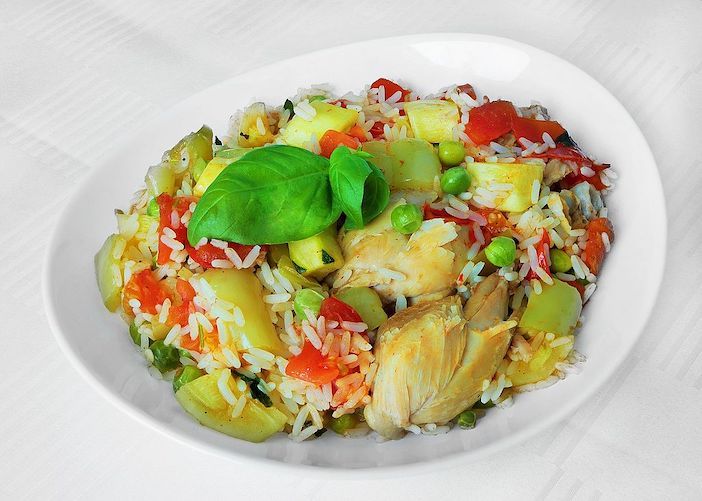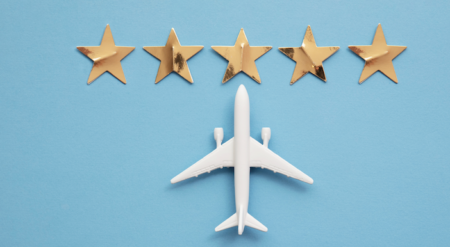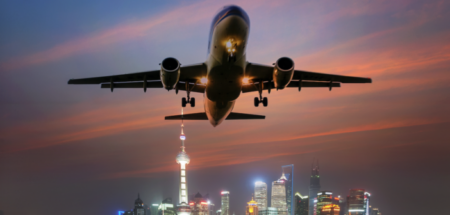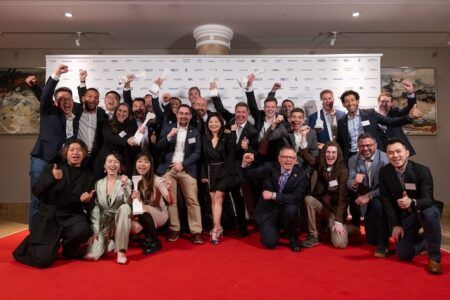Whether produced and consumed for dietary reasons or religious requirements, a continual area of growth for the travel catering and onboard services market lies in Halal products – defined as products that adhere to Islamic law as stated in the Koran. When it comes to food, this means products that have been prepared and handled according to Islamic Sharia law, and generally don’t contain any trace of pork or alcohol.
According to Digital Journal, “the in-flight catering services market size was valued at US$16.23 billion in 2021 and is predicted to reach US$26.53 billion by 2030 with a CAGR of 5.4% from 2022-2030.”
When it comes to Halal food and beverages, the European market is projected to register a CAGR of 5.1% during the forecast period (2020 to 2025), according to Yahoo Finance. By comparison in the USA, a story published by PR Newswire revealed that the Halal food market value will grow by US$8.17 billion, progressing at a CAGR of 5% from 2019 to 2024.
Why is Halal an important growth sector for airline buyers?
Halal products may well still be an area of passenger growth that hasn’t been fully realised or leveraged by onboard suppliers. According to Salaam Gateway, the Muslim travel market is due to rebound to 80% of 2019 levels during 2023. This makes Halal products a requirement as the industry expects millions more Muslim passengers a year.
Benefits of certification
According to the Islamic Chamber of Halal Services (ICHCS), being Halal Certified gives airline buyers the opportunity to cater for all Muslim passengers’ needs. This certification is recognised by affixing the ICHCS Halal Mark, meaning consumers know that they can trust an airline’s products.
Personalised offerings help deliver an ‘above-and-beyond’ experience in passengers’ minds, resulting in improved brand association for airline and rail providers. The current method of pre-ordering meals that cater to specific dietary requirements could be used more widely on airlines as a model for all meal offerings. This could then also make the serving process more efficient and offer another touchpoint to personalise the passenger experience outside of the cabin itself.
Passenger trends
With Muslim passengers accounting for such a large growth sector, it’s important to understand how Halal offerings can factor into this. It’s estimated that (in 2022) the 1.9 billion Muslims worldwide spent over USD $2.02 trillion across six economic sectors, led by Halal food.
Furthermore, research from MasterCard’s Global Muslim Travel Index shows that Muslim travellers give importance to Halal food (67%) as their chief concern when travelling for leisure. This was deemed more important than overall price (53%) and having a Muslim-friendly experience (49%). According to Eng. Ashraf El Tanbouly, CEO Of ICHS, “as an example of trader responsibility, we have seen Muslim airlines demand Halal certificates from all their food and beverage suppliers.”
As a result of the number of Muslim passengers travelling on its fleet, Qatar Airways alone has approximately 3,000 chefs producing over 200,000 Halal-certified meals per day – demonstrating that this niche sector has huge potential. One such example is former World Travel Catering & Onboard Services Expo (WTCE) exhibitor For Aisha which created a range of Halal baby food.
The potential crossovers between vegan and Halal products also opens up the market significantly. Naturally, passenger-type by volume on certain routes informs many of the decisions airlines make about what products to carry. For example, Qatar Airways’ flights from the USA to Doha cater for a lot of vegan passengers, so the airline’s head chef, Mary-Jane Bonnaud, has introduced more vegan options for this route. This also comes at a time when a number of airlines flying regional routes are reducing their onboard offerings for certain dietary requirements, often to the dismay of passengers.
Opportunities for Halal beauty
However, it’s not just food and beverage consumables that can benefit from adopting a Halal supply chain. Eng. Ashraf El Tanbouly comments: “in the cosmetics/pharmaceutical sector, the consumer demand is growing, but suppliers are not yet seeing the opportunities as clearly as food suppliers.”
According to Digital Journal, the global Halal cosmetics market is expected to grow at a massive CAGR of 10% during the forecasting period of 2022 to 2029. This demonstrates that there is a great opportunity for companies operating in this space to take advantage of the growing appetite for Halal cosmetics.
WTCE Exhibitors with Halal offerings:
Laurieri Srl
Laurieri is an Italian master bakers, founded in 1972. It specialises in the production of baked sweet and savoury snacks of various types and flavours, which are also available in the onboard services sector for complimentary snacks. The company’s offerings include: grissotti, mini grissini, flavoured biscuits and crackers.
Across its range, onboard buyers can find products that satisfy the below criteria: no chemicals; no preservatives; no colourings; no milk; no egg; suitable for vegans; suitable for lactose intolerant; and Halal products.
Snackboxtogo
Snackboxtogo is a Holland-based supplier of premium onboard snack solutions for airline and railway buyers. The company currently represents Sunshine Nut Company, 1er potato specialities and Snackboxtogo.
The conmpany offers product ranges for lactose-free, vegetarian, vegan, gluten-free and Halal. The latter includes multiple items including chicken-based snacks, pizza, breakfast foods and fries, which are ‘vegetarian, vegan and Halal at the same time’ in order to appeal to a wide consumer base.
Lily O’ Brien’s
Lily O’ Brien’s was founded in 1992 and is a manufacturer of premium chocolate confectionary based in Co. Kildare, Ireland. The company has exhibited at WTCE every year since 2012 and continues to develop recipes delivering exceptional taste profiles, including the 2014 Great Taste Award-winning Key Limey Pie.
Lily O’ Brien’s continues to innovate and work with customers to develop products to meet the changing needs of their customers. The company also produces gourmet desserts for on-board and food-service industries. As of 2022, the brand now boasts over 250 recipes, including dietary specific options such as vegan and Halal.
So Jennie
So Jennie Paris brings unique French ‘savoir-vivre’ to premium cabins and lounges with its alcohol-free Bubbles. The premium non-alcoholic sparkling drinks brand provides ideal alternatives to well-known French sparkling wines for those who live an alcohol-free lifestyle. Created in 2012, and hand-blended from selected grape musts, So Jennie is the original alcohol-free Bubbles. The brand can be found in 5-star hotels and top restaurants around the world, marketed for and sought by high-net worth travellers from Paris to Tokyo, Dubai to New York.
As well as bubbles, the company also manufactures a selection of Halal wines that are 0.00% alcohol by volume (ABV). Most of these alcohol-free or de-alcoholised wines are suitable for Halal certification, not simply <0.5% ABV (standard definition of non-alcoholic). They are also regularly audited to ensure they meet Halal 0.0% requirements.
WTCE takes place at the Hamburg Messe on 6-8 June 2023. For further details on exhibiting or visiting, go to www.worldtravelcateringexpo.com





